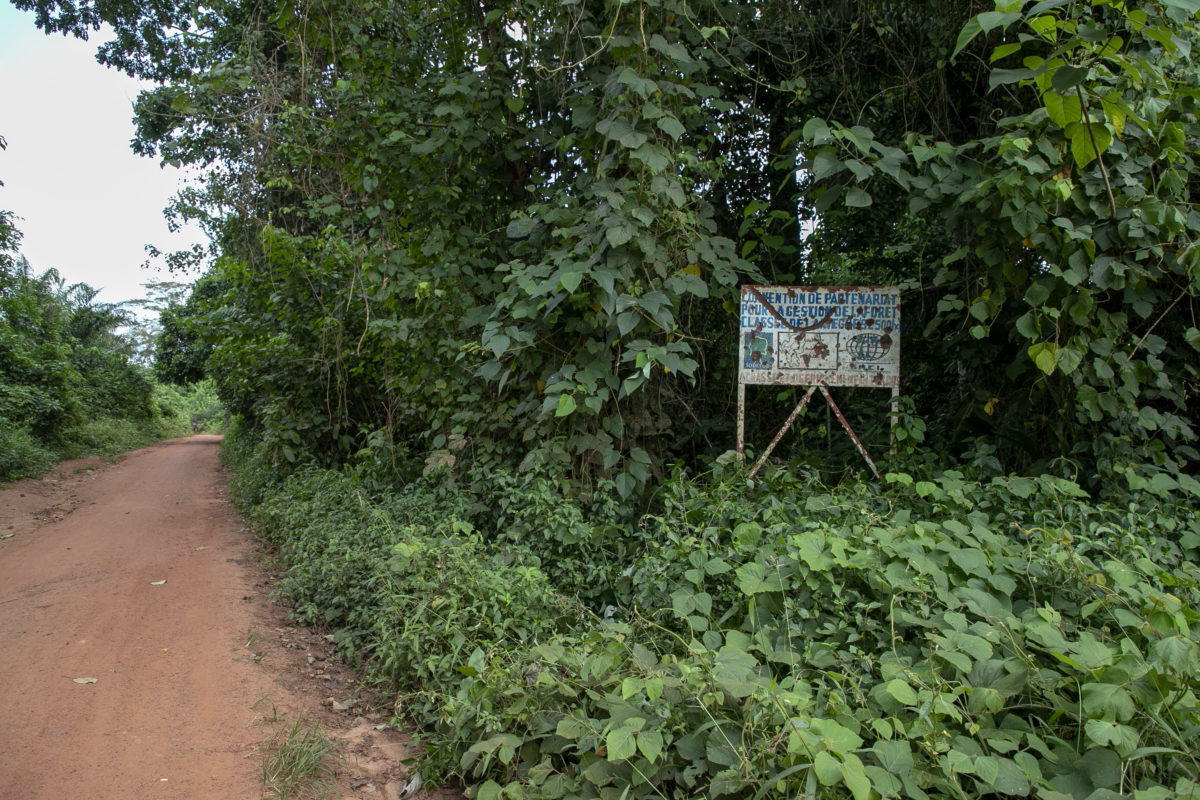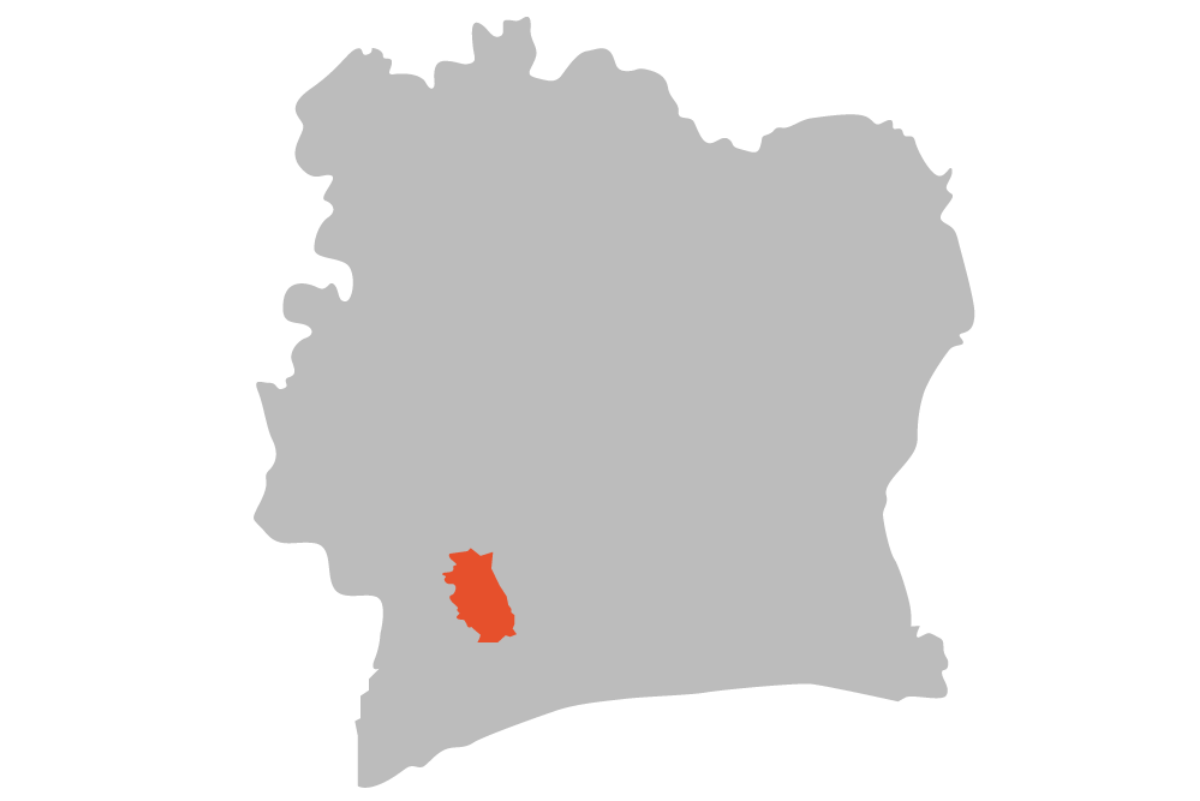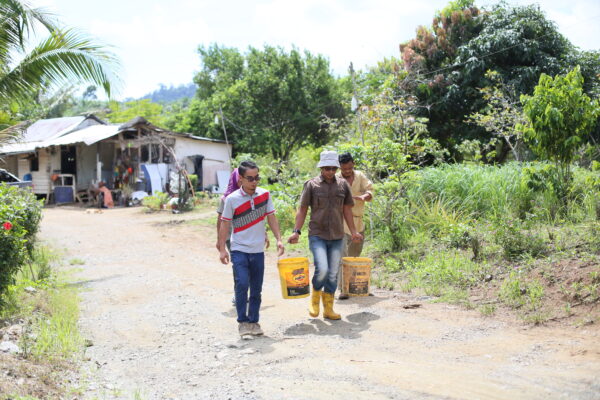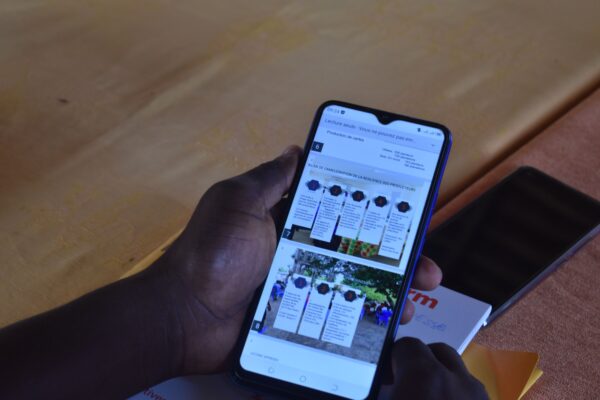This multimedia piece is part of Earthworm Foundation's awareness campaign on the importance of forests and healthy forest landscapes. Visit our #ForTheForests campaign page and follow #ForTheForests across social media channels to learn more.
Helping farmers in the largest cocoa-producing region in Ivory Coast
Soubré is the largest cocoa-producing region of Ivory Coast. It is also home to several protected areas that have faced degradation due to agricultural expansion. Finding a balance between providing livelihoods to farmers while reducing pressure on forests has been the key focus of Earthworm Foundation's work in Soubré with its partners.
Earthworm is helping farmers in Soubré, Ivory Coast reduce pressure on forests and implement regenerative agricultural practices.
Key to the approach is encouraging communities to take up agroforestry, a subset of regenerative agriculture. This is done by training farmers and helping them establish tree nurseries. Saplings from the nursery will then be introduced inside and outside forests.
Farmers - the key to protecting forests
About 190 farmers have participated so far, and two village committees were set up to protect forests in Niégré and Mont Kourabahi. Planting sites have been prepared for about 15,000 native tree saplings.
About 23 hectares of degraded land in Mont Kourabahi Forest Reserve have been rehabilitated with 1,597 trees planted. Species planted include Ilomba, Niangon, Koto, Bois Bété, Framiré, Makoré and Cedrella trees. The trees are being maintained to ensure an 80 percent survival rate. A youth group has also cut grass on the planting line to strengthen tree saplings.

"We wish to recover two to five percent of the forest cover in Niégré and Mont Kourabahi by 2025," said Eléonore N'Gbesso Tanoh, Earthworm's project lead in the Ivory Coast.
The region is also home to protected areas threatened by agriculture. These include the Taï National Park, as well as forests in Niégré, Grah Rapids and Monts Kourabahi. While Taï National Park is the best-preserved forest in the country, Niegre and Monts Kourabahi have lost more than 80 percent of their forest cover.
Accounting for 20 percent of national production, Soubré is the largest cocoa-producing area in Côte d'Ivoire - the largest cocoa-grower in the world.

"Many have secretly started cocoa farms inside those forests and a substantial community lives off income from these farms," explains N'Gbesso.
A 2015 study found that "wildlife within Ivory Coast's Protected Areas is increasingly threatened by hunting and cocoa farming." It goes on to say that to control hunting, illegal cocoa farming must be reduced.
This complex situation, coupled with national deforestation rates, led the Ivorian government to adopt a new forestry code in 2019.

The country has one of the highest deforestation rates in Africa, losing around 80 percent of its forest from 1960 to 2015.
A 2017 Mighty Earth report argues 90 percent of protected areas have turned into cocoa crops.
The 2019 Ivorian forestry code distinguishes forests in three categories. The first forbids human activities and presence, an example being the Cavally Forest Reserve. The second category allows agroforestry for a limited time, like in Niégré; while the third is permanently classified for agroforestry, of which Monts Kourabahi is an example.
Agroforestry maximises land by combining trees with farm crops or livestock, Eléonore explained. It also restores the ecological balance of land, improving the stability of soils and weather.
Key to this work is the partnership with the Ivory Coast forest management agency, SODEFOR (Société de Développement des Forêts de Côte d'Ivoire). SODEFOR helps with access to forest reserves, as well as the identification and reforestation of degraded areas.
“With SODEFOR, we aim to show farmers the importance of forests and get them to take ownership of the idea," explained Eléonore.
The Ivorian state has committed to restoring 20 percent of forest cover through a new forest policy, a vision shared by Earthworm Foundation, according to Lieutenant Nestor Kodjo, agent at the Forest Management Unit of Rapides Grah Nord Soubré.
"Today, we are witnessing a drastic reduction in forest cover due to human activities, particularly agriculture," he said.


